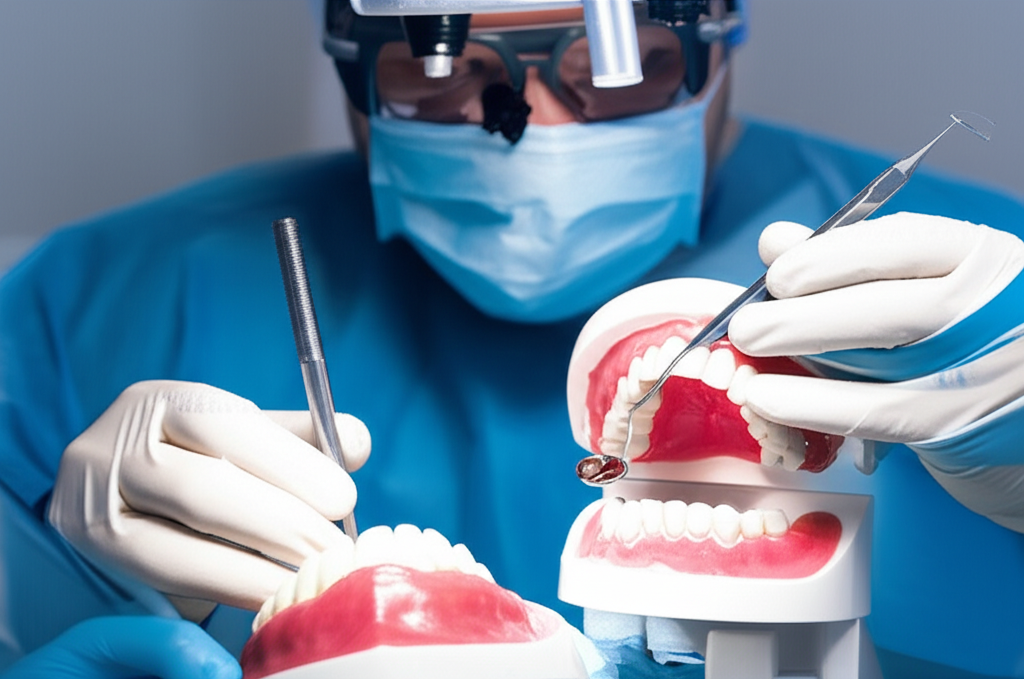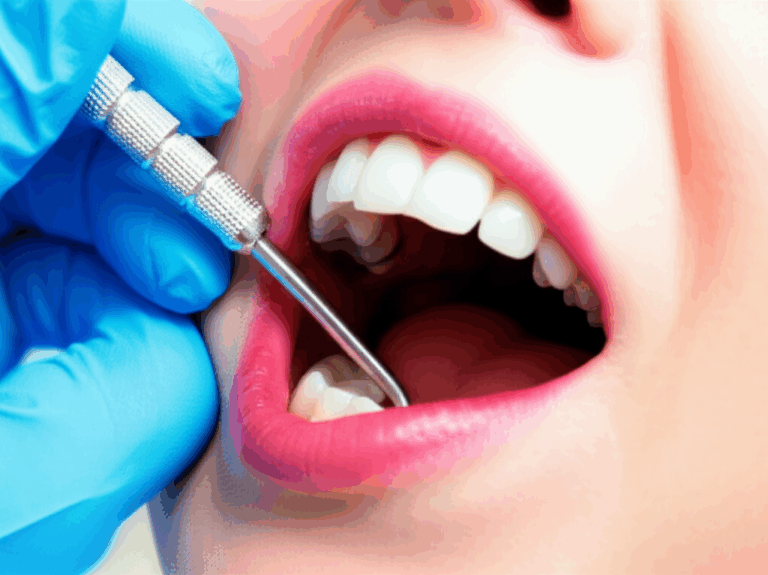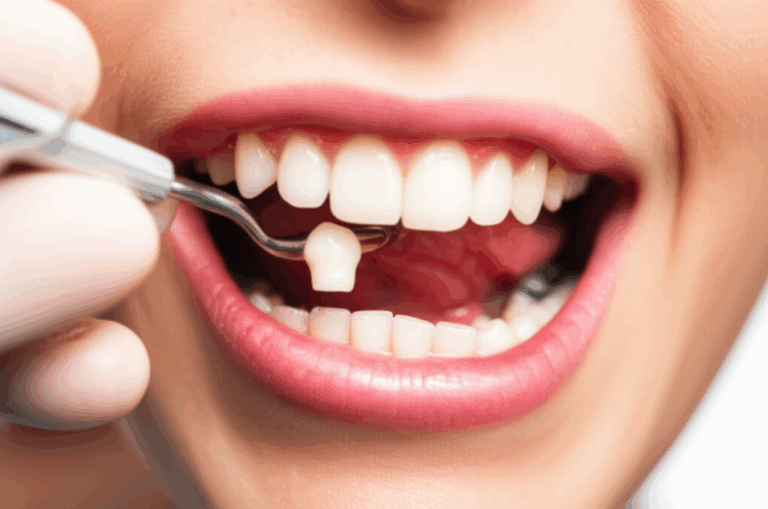
Can a Dentist Do Two Root Canals at Once? Your Friendliest Guide to Efficient Dental Care
That moment you hear, “You’ll need a root canal,” your heart probably skips a beat. So, what if your dentist suggests two root canals—maybe even in the same visit? Or maybe you’re looking at your dental x-rays, wondering if this is possible or even a good idea. You’re not alone if you’re worried.
If the idea of one root canal makes you nervous, the thought of two might make you even more uneasy. Is it safe? Does it hurt more? Can it save you time or money? And most of all—do people really do this?
Let’s calmly walk through your concerns. Here’s what really happens when you ask, “Can a dentist do two root canals at once?”
In This Article
What We’ll Cover:
- Yes, It’s Possible: When and Why Dentists Perform Dual Root Canals
- Factors Influencing the Decision for Simultaneous Root Canals
- Benefits of Having Two Root Canals Done in One Visit
- Potential Risks and Disadvantages of Dual Root Canals
- What to Expect During a Dual Root Canal Appointment
- General Dentist vs. Endodontist: Who Should Perform Multiple Root Canals?
- Recovery and Aftercare for Multiple Root Canals
- Making the Best Decision for Your Oral Health
- Frequently Asked Questions (FAQs)
- Your Healthy Takeaway (Summary and Empowering Steps)
Yes, It’s Possible: When and Why Dentists Perform Dual Root Canals
So, can a dentist do two root canals at once? Simply put, yes—this is possible in many cases and is sometimes the best thing to do.
A lot of dentists do two root canals during the same visit, especially if the teeth are close together or if you need it done quickly. The main reasons? To save time, keep you more comfortable, and sometimes just because it makes sense.
How Does This Work?
Think of your dentist like a mechanic working on two flat tires at the same time instead of fixing one, then having you come back next week. If both teeth need help at the same time, doing both together can save you lots of back and forth.
But, like car repairs, things like where your teeth are, how you feel about dental visits, your health, and how hard the root canal will be all play a part.
It’s Not Odd or Unsafe
Having two done at once might sound like a lot, but it’s not risky or strange for most healthy people. Dentists and tooth specialists (called endodontists) are used to longer root canal appointments and have the right tools to keep you safe and numb the whole way through.
Factors Influencing the Decision for Simultaneous Root Canals
You might ask, “So why don’t people always do two at once?” Good question—here are the main reasons your dentist might say yes or no:
How Hard Each Tooth Is to Fix
- Easy Root Canal: If both teeth have straight roots and simple shapes, doing two isn’t too tough.
- Hard Root Canal: Teeth that twist, bend, or have a weird shape take longer and are harder to do, even one at a time.
Where the Teeth Are
- Next To Each Other: Treating side-by-side teeth is simpler—they can be numbed together.
- On Opposite Sides: Doing a root canal on both sides of your mouth, or top and bottom, can get tricky and take more time.
Your Health & How Long You Can Sit
- Overall Health: If you have heart issues, diabetes, are pregnant, or have a weak immune system, your dentist might want to do just one at a time.
- Sitting Still: You’ll need to keep your mouth open for up to 2-4 hours. If this sounds hard or you have jaw, neck, or back problems, talk to your dentist.
- Nervous Patients: If you have high dental anxiety, it might be better to split it up or ask about calming (sedative) options.
Dentist’s Skills & Office Equipment
- General Dentist: Often fine for simple root canals.
- Endodontist: If your teeth are tricky, you’ll do better with a specialist who does this every day and has special equipment.
- Modern Equipment: Some offices have fancy microscopes and 3D x-rays to make the work faster and safer. You’ll find these more at a clinic with a good digital dental lab.
Infection or Swelling
- If your mouth is badly infected or swollen, your dentist might treat the worst spot first and have you come back for the second tooth later.
Numbing & Medicine
- Longer work means you might need more numbing shots. Your dentist will make sure the amount is safe. If you’re worried, you can ask for nitrous oxide (laughing gas), a calming pill, or an IV sedative to help you relax.
Benefits of Having Two Root Canals Done in One Visit
If you’re a good fit, there are some real benefits to getting both root canals done together.
Save Time
- Fewer Appointments: Only one big visit instead of two (or even more).
- Less Travel and Waiting: One trip to the office, less time off work, and less time with tooth pain.
Might Save a Bit of Money
- Extra Costs: The cost for two root canals is the same, but you may save on extra fees for extra appointments, numbing, or office charges.
Only Need One Numbing
- Fewer Shots: Only one round of numbness and tingling, not two.
Faster Recovery
- All at Once: You only go through the “sore and healing” part once, not twice.
Less Worry (for Some Folks)
- Less Waiting: Some nervous patients like to just get it over with in one day, instead of worrying about two.
Potential Risks and Disadvantages of Dual Root Canals
But two-in-one isn’t always better. Here’s why:
Long Time in the Dental Chair
- Sitting with your mouth open for hours makes some people uncomfortable (and sometimes sore).
- You could get tired and need to stop before both teeth are finished—so you might still need a second appointment.
More Tenderness Later
- Two teeth healing at once may make your mouth feel a bit more sore or puffy after. But usually, normal pain medicine helps.
Dentist Gets Tired Too
- Root canals take a lot of focus. If the dentist or their helper starts to get tired, quality can go down.
Small Increase in Problems
- A longer procedure can increase the small risk of a problem—though in experienced hands, this is rare.
You Might Be Worn Out After
- Some people just feel wiped out for the rest of the day.
What to Expect During a Dual Root Canal Appointment
Wondering what it’s really like to get two root canals together? Here’s the easy breakdown:
1. Exam and Planning
- X-Rays: The dentist looks at pictures of your teeth to see how tricky the root canals will be.
- Planning: Your dentist tells you what will happen and answers questions.
2. Getting Numb or Relaxed
- Local numbing (so you won’t feel pain).
- If you’re nervous, ask about laughing gas or a sleepy medicine.
3. Keeping the Area Clean
- A little rubber cover (“dental dam”) is put in to keep saliva away and the area germ-free.
4. Cleaning the Teeth
- Small holes are made in each tooth. The dentist takes out the sick or dead part inside.
- Cleaning and shaping the inside of the root.
- Sometimes, new tools or digital x-rays can help, especially at offices using a digital dental lab.
5. Sealing Everything Up
- After cleaning, the dentist fills the roots with a special material to stop infection.
- A temporary filling is put in until your real crown or filling can be made.
6. Going Home Care
- You’ll get home instructions: how to handle pain, what to eat, brushing tips, and what signs to watch for.
- Later, you’ll come back to get a permanent cap or filling, which might be made at a crown and bridge lab.
General Dentist vs. Endodontist: Who Should Perform Multiple Root Canals?
Another big question: Should I see a specialist for two root canals at once?
General Dentist
- Handles routine dental work, including many easy root canals (especially the ones in front).
- Can do two at once if both are simple.
Endodontist
- A tooth specialist trained for hard cases: tricky back teeth, re-doing old root canals, or teeth with weird shapes.
- Uses special tools and images to get things done faster and better.
- If your teeth are tough or you’re worried, an endodontist is a good bet.
Not Sure?
Ask your dentist. If they think it’s too tricky, they’ll send you to someone who does this work all day long.
Recovery and Aftercare for Multiple Root Canals
You did it! Now, here’s how to bounce back fast:
Handling Pain
- Most people just need Advil or Tylenol. Rarely, you’ll need something stronger.
- Some soreness or swelling is normal for a few days.
What Should I Eat?
- Stick to soft stuff for 1-2 days (yogurt, noodles, mash potatoes).
- Don’t bite on the root canal teeth until your permanent crown or filling is done.
Taking Care of Your Teeth
- Brush and floss gently. Keeping it clean helps you heal quicker and wards off new infection.
Watch for Problems
- Big swelling, fever, pain that won’t go away, or pus—call your dentist right away.
- Your dentist will explain what’s normal and what’s not.
Don’t Miss Your Follow-Up
- You need a second visit for your crown or finished filling.
- This step is key! Root canal teeth are weaker without a permanent cover.
Making the Best Decision for Your Oral Health
Everyone is different. Here’s how to make your decision:
Talk Openly
- Don’t be afraid to ask, “Why both at once?”, “Is it safe for me?”, or “Can I split them up?”
- Tell your dentist about any health issues or worries.
Know Your Limits
- Some people want to be done quickly; others need shorter appointments. Both are okay.
- If you’ll be sedated, arrange a ride home.
Think About Your Life
- If you have health problems or trouble taking time off, talk this over.
- One big recovery is usually faster, but a bit more intense.
Aim for Strong, Lasting Teeth
- Don’t rush root canals. Picking good quality and safety keeps your teeth healthy the longest.
- Do it right, even if that means more visits.
Frequently Asked Questions (FAQs)
Q: How long does it take to do two root canals at once?
A: Usually 2-4 hours, depending on which teeth and how hard they are to fix.
Q: Is it more painful to have two root canals at once?
A: Nope. You’ll be numb the whole time. After, you might feel a bit more sore since two teeth are healing, but over-the-counter painkillers help most folks.
Q: Will my insurance pay for two root canals in one visit?
A: Most dental plans pay for necessary root canals, no matter when you do them, but always double-check your insurance.
Q: Can I go to work after getting two root canals?
A: Most people take the rest of the day off. The next day, you should be able to go back, even if you feel a little sore.
Q: What if I change my mind during the procedure?
A: It happens! If it gets too much, your dentist can stop after the first tooth and finish the second one later.
Who Is a Good Candidate for Dual Root Canals?
You might be a good fit if:
Good Candidates:
- You’re healthy (no big heart, diabetes, or immune problems).
- Can sit for a few hours easily.
- Not too anxious, or you use calming medicine.
- Teeth are next to each other or easy to reach.
Not Good Candidates:
- Have some health problems that make long visits risky.
- Get really nervous or scared (unless you get sedation).
- Roots are really tricky or twisted.
- Can’t sit with your mouth open for long.
Not sure? Ask your dentist. It’s okay to try one tooth and see how you do.
Empowering You: Your Healthy Takeaway (Summary and Next Steps)
Here’s what really matters:
- Yes, dentists can do two root canals at once. It’s pretty common if everything lines up right.
- Think it over. Consider how much work your teeth need, if you can handle a long visit, and what fits your schedule.
- Speak up. Your questions and feelings are important.
- Take your time with healing. Follow aftercare tips to keep your mouth healthy.
- Choose quality work. Crowns or fillings from expert dentists or a top crown and bridge lab make a big difference.
Your Next Steps:
- Ask every question you have—there are no dumb questions.
- Double-check your dental insurance before your appointment.
- Don’t skip your aftercare—the way you heal matters a lot!
- Remember: The goal is to keep your real teeth healthy for years. What’s best for you comes first.
Still not sure? You can ask for a second opinion from a root canal specialist or check if your clinic works with a top digital dental lab for the best crowns and fillings.
A healthier, happier smile—sometimes it just takes one (or two) root canals. You’ve got this!
Sources for More Info:
- American Dental Association (ADA): Root Canal Treatment
- American Association of Endodontists (AAE): Root Canal FAQ
Have questions or want to share your story? Talk to a dental professional for peace of mind.
For more on dental topics, check out our guides on dental implants, veneers, and choosing the right dentist for your needs.








